PARIS — The trend of fewer and fewer practicing large animal vets has been a serious concern for livestock owners and farmers for years. The hours are hard, the road time is long and the pay is not on par with other jobs in the veterinary field.
Yet, Oxford Hills has the benefit of not one but two young vets who have joined Dr. Matt Holden’s veterinary practice in South Paris.
One is his daughter, Dr. Kathleen (Kate) Holden, who worked in different roles at Oxford Hills Veterinary Hospital off and on for years and is now with it for good, since graduating from Kansas State University’s College of Veterinary Medicine two years ago.
The other is Dr. Samantha Begin, a Jackman, Maine native who recently earned her degree in veterinary medicine from Atlantic Vet College at the University of Prince Edward Island in Canada. Begin brings with her a specialty in holistic veterinary medicine and acupuncture.

Dr. Samantha Begin, right, examines Donny, an 18.1 hand Hannovarian, for trigger points ahead of his first acupuncture treatment. Nicole Carter / Advertiser Democrat
For Begin, the path from Jackman to the South Paris practice was brief and straight as she followed a love for horses to job shadow and assist large animal vets as a teen. Now a graduated veterinarian, she joined Oxford Hills Vet right out of college.
Kate, who grew up working for her dad, had not pictured herself as a career veterinarian until she overheard her parents discussing his eventual retirement, which would also mean selling the practice.
“For a very long time I said I did not want to be a veterinarian,” she said during an interview in her office last week. “Simply, I saw the difficult hours and other aspects because it isn’t all puppies and kittens. There are parts that can be very hard on you.
“For a while I thought that I wanted to be involved in horse training. But I kept coming back to assisting here at the practice. When I overheard their conversation, for some reason it had never occurred to me that it would happen someday.”
After some hard reflecting, Kate came to the conclusion that her love of veterinary care was stronger than its hardships. She went back to school to earn the prerequisite credits she would need for vet school and found herself enrolled at the University of Kansas at the age of 28.
“I wasn’t even necessarily thinking I’d apply to K-state – I’d wanted to go to Cornell because that’s where my dad went and he loved it so much,” Kate said. “But I had asked one of the veterinarians here for a recommendation and she had lived in Kansas. She asked if I was going to apply to K-state, where she went. So I did, why not? I got in first try and I accepted because I thought that if they want me I will go! Especially since they have a low acceptance rate.”
One of the draws for Kate to K-State was that their curriculum allowed for her to focus on general veterinary medicine rather than a specialty like small, large or wildlife. Oxford Hills Vet is a mixed practice, meaning domestic animals of all sizes. Matt Holden is also certified to treat wildlife and handles care and treatment of birds, poultry and fowl.
“A lot of schools are transitioning toward [narrower] specialties,” she said. “But K-state goes for a very well rounded education and that worked well for me.”

Begin (left) and Nancy Larrivee of Otisfield try to convince Faith, a miniature mare, that getting vaccinations is not that bad. Nicole Carter / Advertiser Democrat
Begin knew as a teen that she wanted to work with horses. In northern Somerset county where she was from, the closest small animal vet to Jackman is in Skowhegan, with the large animal clinic being in Dover-Foxcroft.
“I worked for Dr. Dennis Ruksznis for a few summers,” said Begin of her career start. “Shadowing with him, I found my love of large animals and doing everything. Going out on the road and not just seeing dogs and cats. I got to work with cows, horses and goats. It was awesome to me to get that varied ability and knowledge base.”
Growing up in a remote Maine town, Begin did not feel prepared to go off to a college in a larger city, like Cornell or Tufts University. But she knew that Prince Edward Island had a vet school and toured it while on vacation there with her family.
“I loved the island, it was gorgeous and it has a very calming feel to it,” Begin said. “So I did two years of undergrad there and was lucky enough to get accepted to the vet school and stayed on.”
Oxford Vet Hospital is her first stop after graduating. She wanted to work in a mixed practice that was not far from where her boyfriend lives in the lakes region.
“I saw the opening, shadowed here, and it was a great fit,” she said. “I’ve seen the usual—dogs, cats, horses, cows. I recently treated swine, which was interesting. They don’t have handles which would make it easier to catch them. I’ve done worked with goats and sheep.”
Last Thursday was Begin’s day to go on the road for farm calls. The first call at Hidden Brook Farm in Norway that morning had also been her final one the night before to treat a horse for colic.
Laura Brainerd, whose family has run the farm for multiple generations, had scheduled her Grand Prix horse Donzetti for his first acupuncture session.
“At 14, he is starting to stiffen a little,” Brainerd said. “I want him to be more comfortable in his every day work. This is pro-active care to help him as he ages.”
But last night Donny was off and Brainerd first consulted with Oxford Vet by phone and then had Begin come out to look him over and treat him.
“I had them come out because I knew I would be checking him every half hour and sleep in the tack room,” she said. “I’d just be flashing the flashlight on him all night. He would have gotten no rest. His symptoms were minor so we did oral treatment, and after that, around midnight he was almost normal. By 2:30 a.m. he was standing in a normal, comfortable position in his stall.”
Begin went over Donny with a diagnostic scan according to holistic practice. She felt his ears for warmth, took his pulse and checked his tongue color.

Donny stands quietly as he undergoes his first acupuncture treatment. He was still recovering from a bout of colic that had brought Begin out to the farm the night before. Nicole Carter / Advertiser Democrat
“I’m scanning to see where he is reactive at all,” Begin explained. “He had a mild reaction when I touched along his neck, pulling away a bit. Sometimes it’s eye rolling or an ear flick. The owner often will pick up on it before me.
“A severe reaction would be trying to bite or kick, or run away. Right now he’s got mild reactions. It could have to do with stomach pain [from the colic], maybe there’s something intestinal going on.”
Having determined trigger spots to work, Begin then began Donny’s acupuncture session, gently inserting needles at points at his forehead, neck and leg joints. She told Brainerd that the reactions she was getting could still possibly be from the colic and she was not ready to rule out a possible ulcer ailment, explaining her findings in terms of Chinese practice. Donny was well behaved and cooperated through Begin’s exam and treatment.
Brainerd said that Matt Holden has been the family’s vet as long as her parents had been running the farm, which they took over from her grandparents. Of the 45 or so horses boarding and training at the stable, Matt and his associates take care of them all, save a couple of New Hampshire transplants whose owners retained their previous veterinarians from across the border.
During the afternoon Begin made a routine farm visit in Otisfield to vaccinate Nancy Larrivee’s two large and two miniature mares.

Miniature mare Lexie lends moral support to her buddy Faith as Begin preps her to be vaccinated. Nicole Carter / Advertiser Democrat
Rio, a retired Canadian warmblood, and Boo, an active Thoroughbred/Percheron cross were quickly taken care of, although Boo kicked up her heels a bit when released. One of the minis, Lexie, was easily vaccinated. The other, Faith, was not in the mood for shots and spent several minutes making halfhearted attempts to avoid them. Lexie hovered nearby, doing what she could to soothe her herdmate.
Larrivee has used Oxford Hills Veterinary Hospital since moving to Maine from New Hampshire five years ago. There has only been one time where she called on a different large animal vet, during an emergency.
“But I’ve always used them in an emergency, too,” Larrivee said. “I’m very lucky they are only 20 minutes away.”
Matt Holden bought the practice in South Paris back in 1976 and always maintained a mixed practice. In the early days dairy farms were the usual clients. He continues to see a number of beef cattle and in recent years horse and small ruminant care has increased. Today the mix is 85% small animal to about 15% large and it is fully staffed with three full time vets, a fourth part time, two vet technicians and 10 assistants.
“When I went through veterinary school I didn’t want to specialize. I was interested in every aspect of veterinary medicine so I never focused on one area,” Matt said. “Many years ago we had one lady that interviewed and wanted to do cows. We didn’t handle enough for her to be a good fit. I don’t think we’ve ever had a vet that cared for farm animals exclusively.”
Other vets in the large animal field have closed their practice, retired or passed away.
Oxford Hills is fortunate to not only retain its longtime practitioner in Matt but also work with the younger associates he has hired, two women who happily embrace the hard work livestock care requires.
Copy the Story LinkSend questions/comments to the editors.


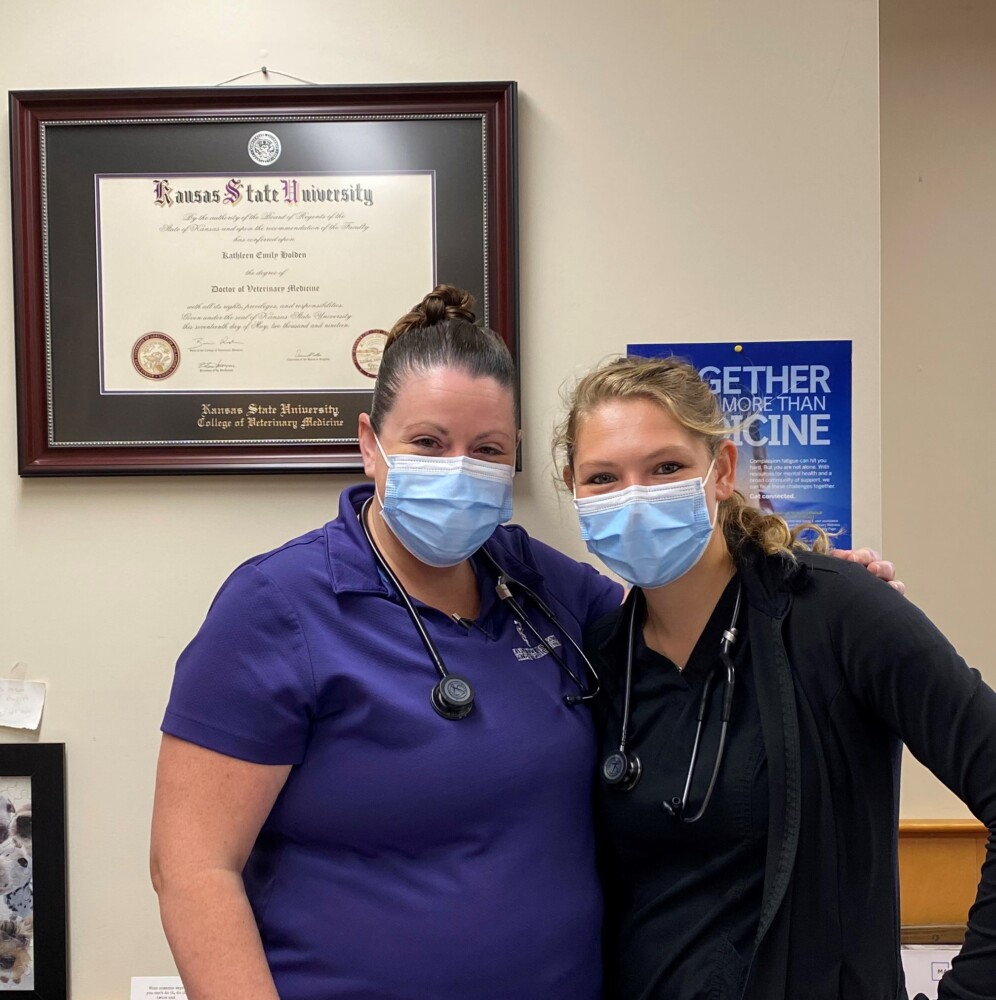
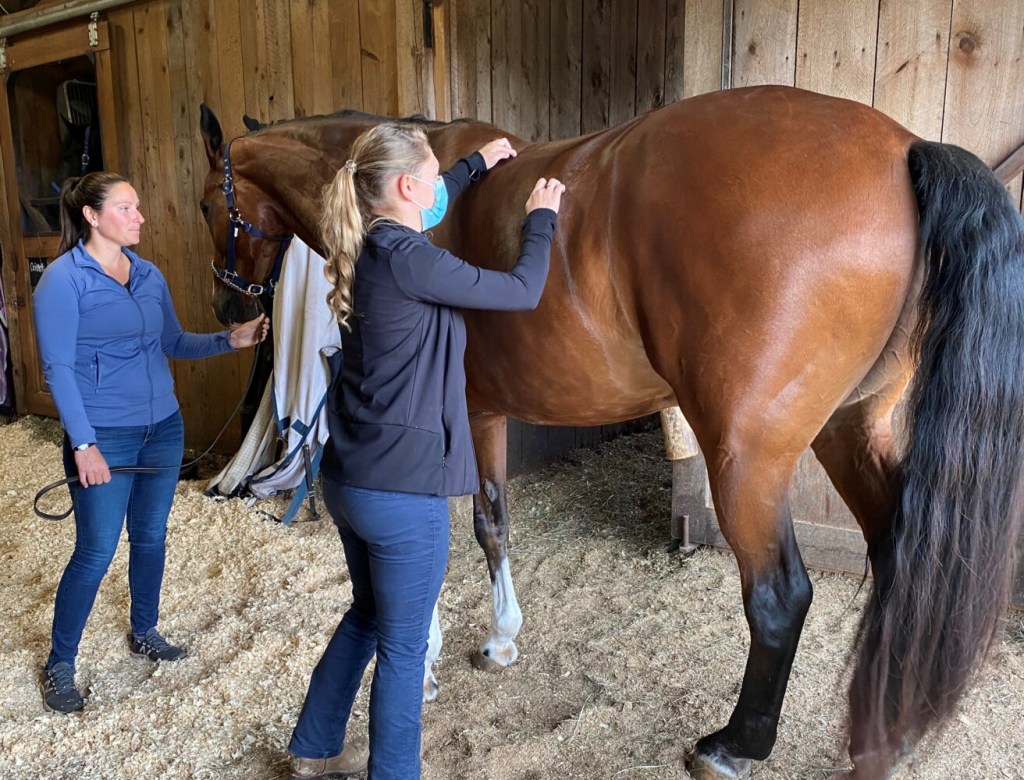
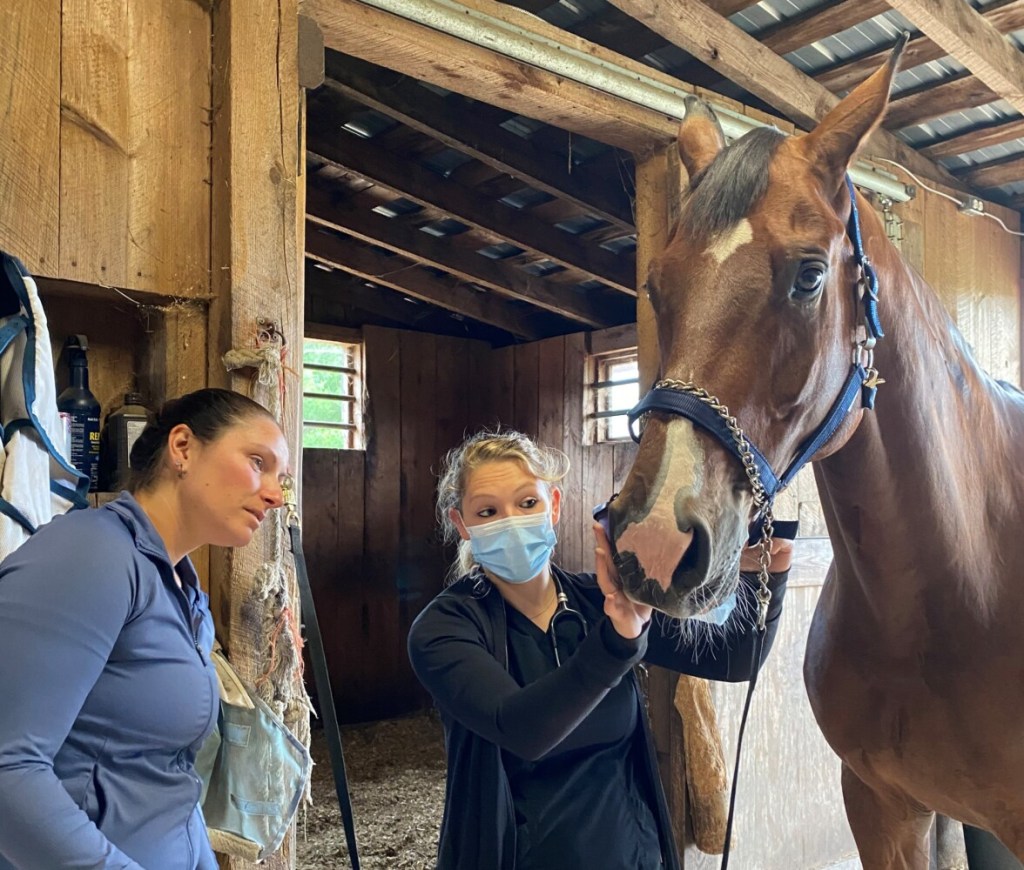
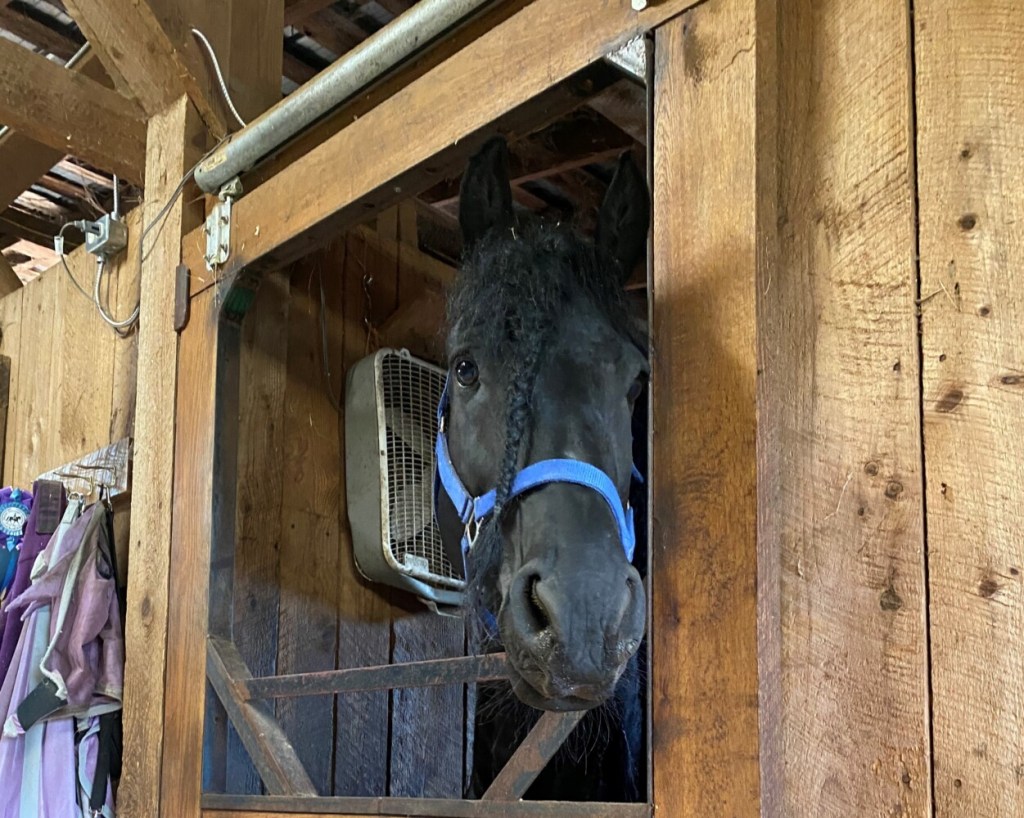
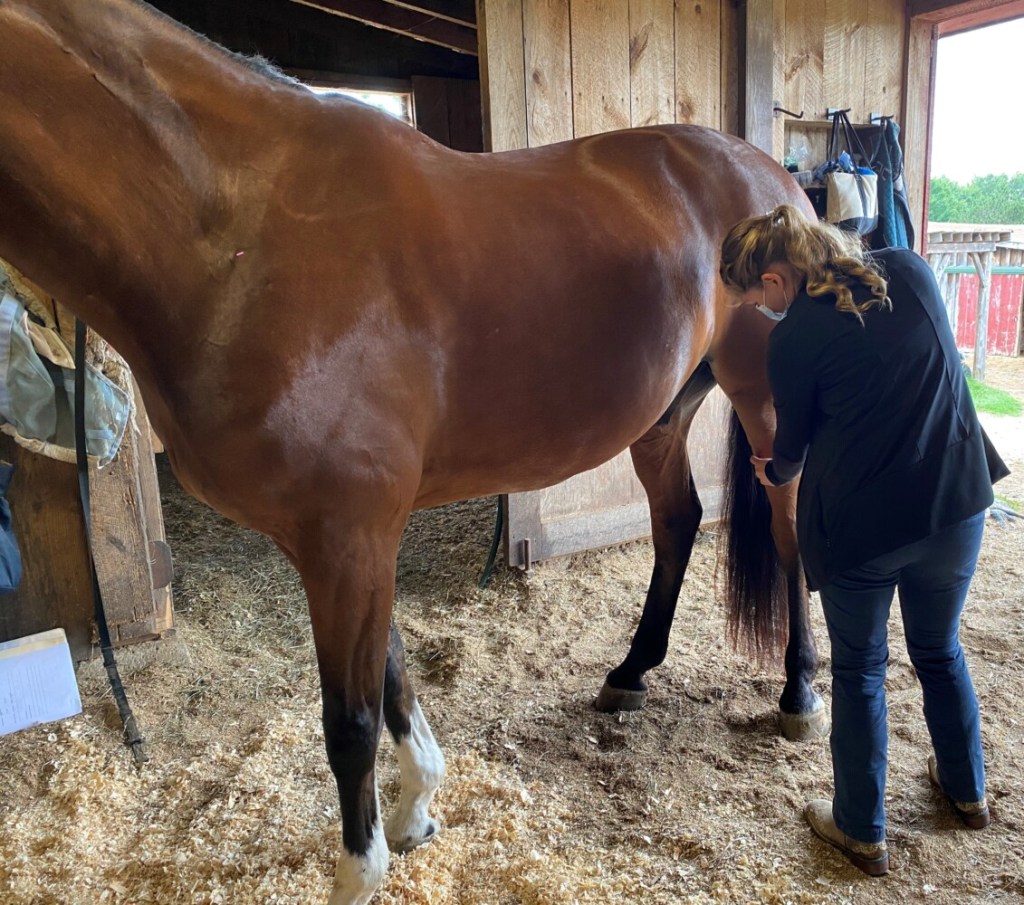
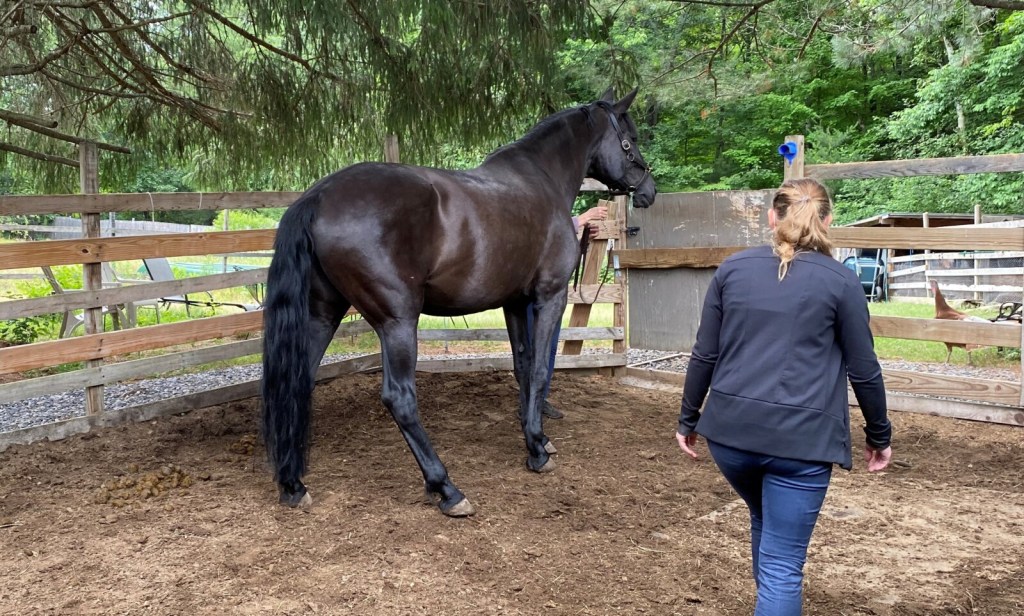
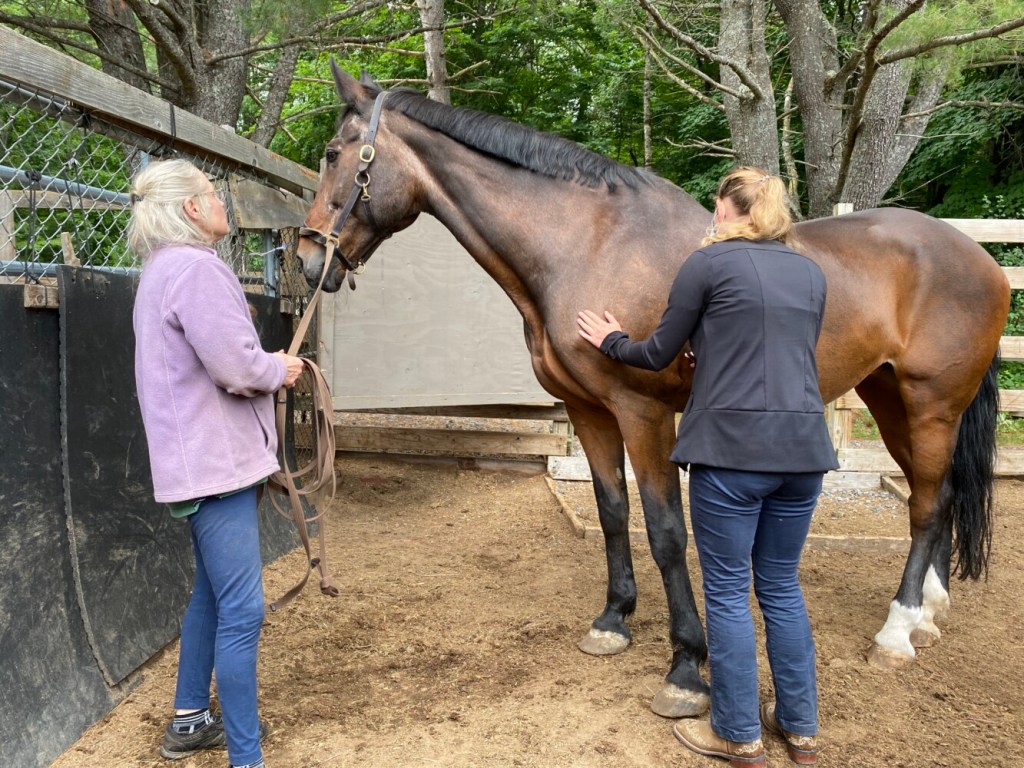
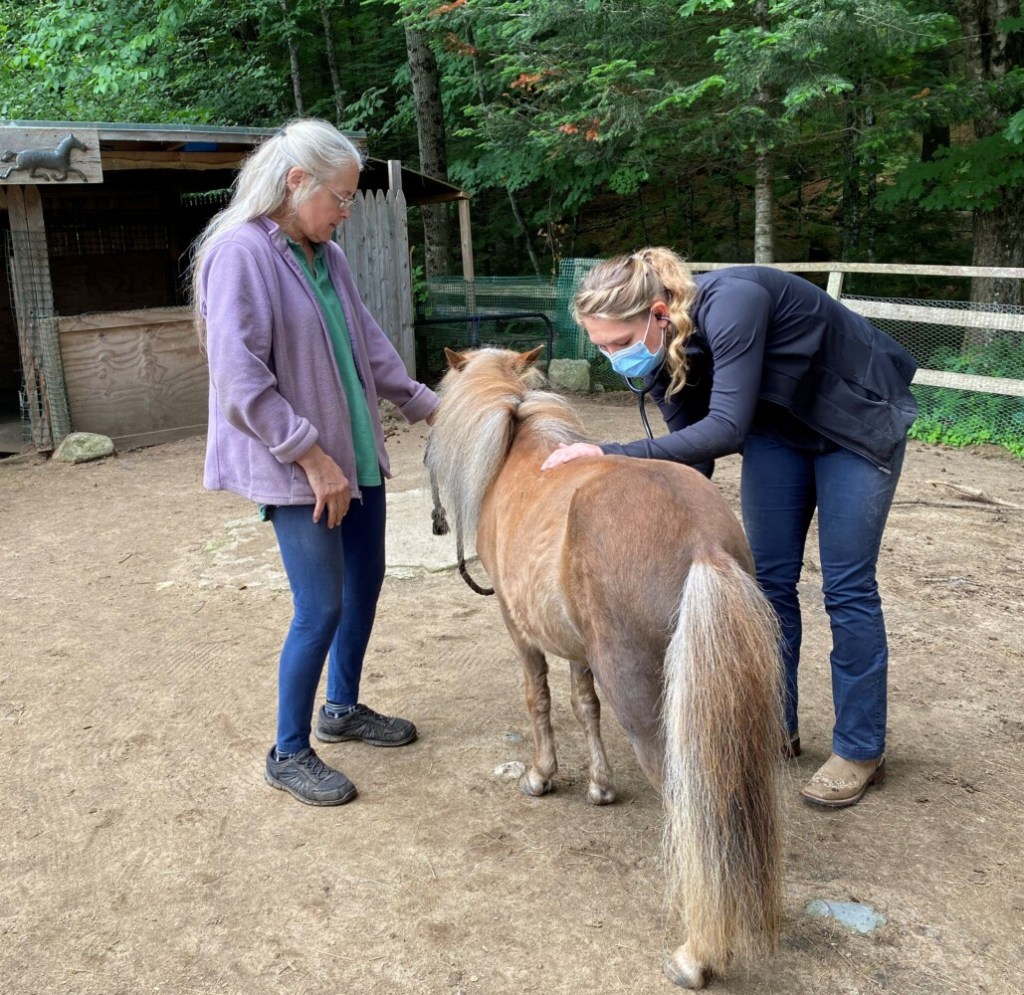
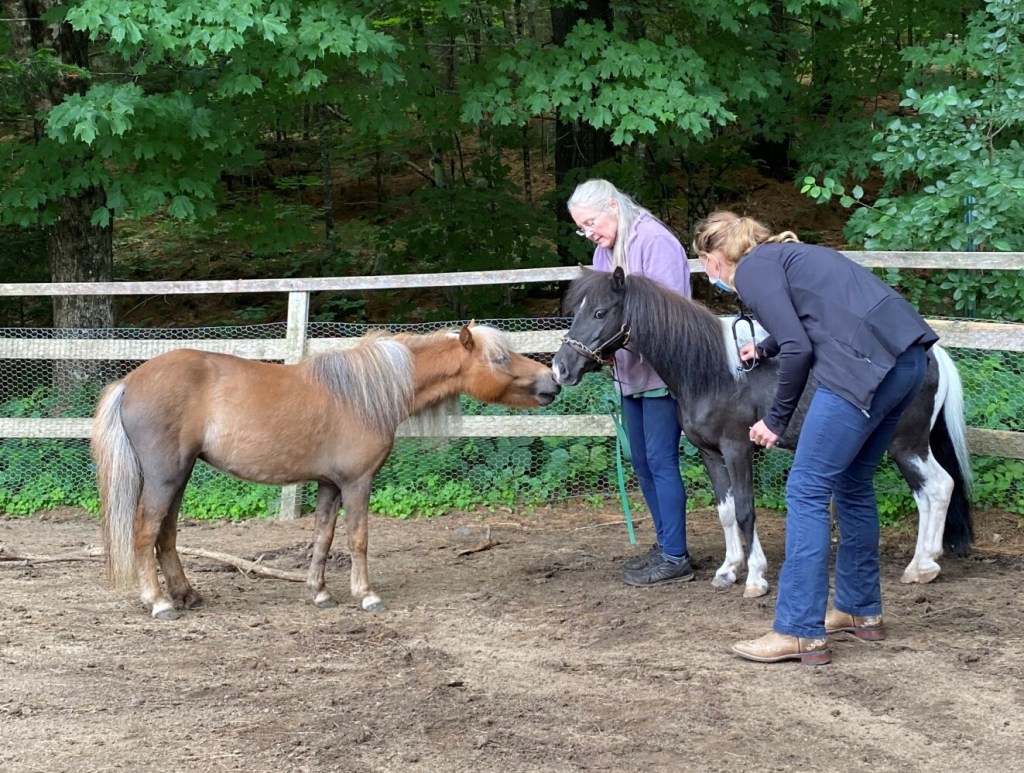
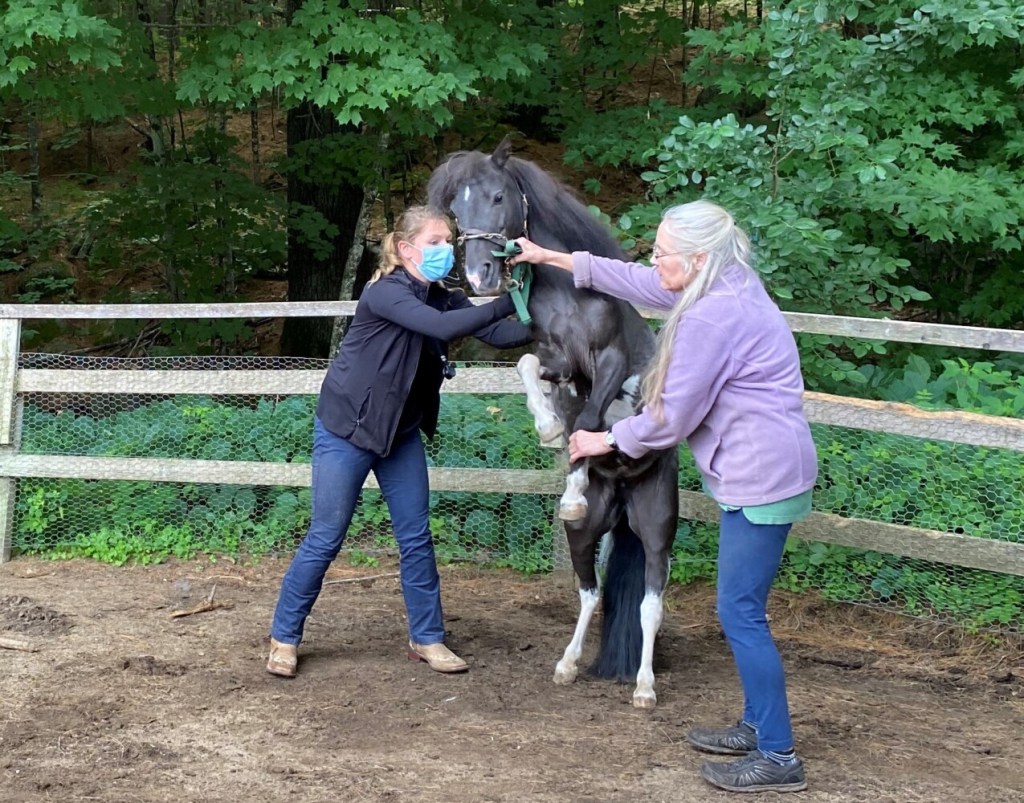

Success. Please wait for the page to reload. If the page does not reload within 5 seconds, please refresh the page.
Enter your email and password to access comments.
Hi, to comment on stories you must . This profile is in addition to your subscription and website login.
Already have a commenting profile? .
Invalid username/password.
Please check your email to confirm and complete your registration.
Only subscribers are eligible to post comments. Please subscribe or login first for digital access. Here’s why.
Use the form below to reset your password. When you've submitted your account email, we will send an email with a reset code.